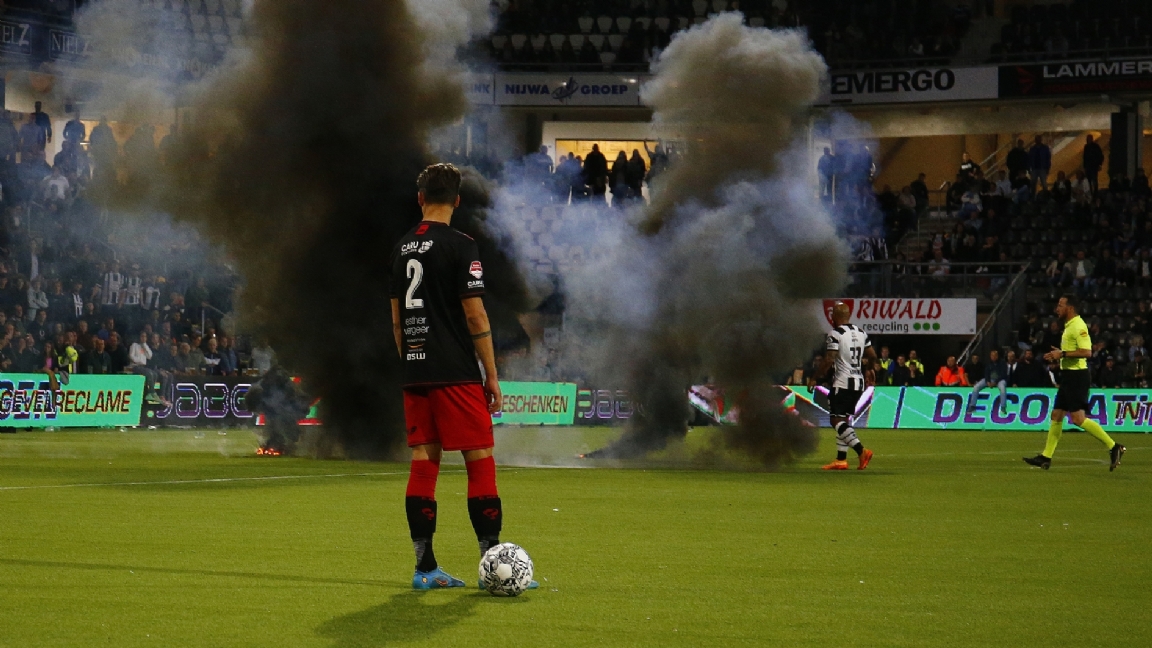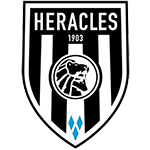

The relegation of Heracles Almelo could have major consequences for the future of synthetic turf pitches in the Eredivisie. In recent years, the Almeloërs have thwarted a total ban on plastic surfaces at the highest football level, but are losing their possibly crucial vote in the Eredivisie CV due to the relegation to the Kitchen Champion Division.
The resistance to artificial grass has increased further and further in recent years. “This is outrageous,” said Dusan Tadic in 2021 about the artificial grass at Sparta Rotterdam Castle. “All Dutch teams are doing well in Europe, but you have to play on normal grass. All artificial grass pitches have to be removed.” The statements of the captain of Ajax are six months old, but since the introduction, the artificial fields in the Eredivisie invariably end at the bottom of the field classification that is compiled by the captains of the clubs themselves. In 2017, twelve of the eighteen captains also publicly called for an end to artificial grass, and a year later, a total ban was seriously discussed in the Eredivisie CV.
Ajax, Feyenoord, PSV wanted to make a considerable financial gesture with that ‘change agenda’ in 2018 to be able to put an end to artificial grass. The top clubs made a concrete proposal to hand over a percentage of European income, in order to financially compensate for the decline to natural grass. Clubs such as ADO Den Haag and PEC Zwolle were prepared to think along and switch at the time, but Heracles put his heels deep in the sand, it knew. General Newspaper to report at the time. The people from Almelo threatened to go to the CAS if the ban were continued and in this way forced a compromise: five percent of the European income has been distributed since 2021 among the natural grass clubs that did not play European football in that season.
In the meantime, Heracles did not pay attention to the call from football to put a stop to the artificial grass. In 2020, the club decided without batting an eyelid on a new artificial grass pitch. “In our emotional world we have been making rational decisions for years,” said Heracles general manager Rob Toussaint at the time. Heracles was a trendsetter in 2003 by being the first club in the Netherlands to play on artificial grass, which is supplied by main sponsor Ten Cate Grass. Two years after laying the fake grass, the Tukkers were promoted to the Eredivisie, where they have managed to maintain themselves every season since (until now).
Why Heracles is so eager to continue on artificial grass? By installing an artificial turf field, a professional football club gains an important financial advantage over the competition of an estimated several tons of euros per year. The fake grass requires much less maintenance and also makes training in your own stadium possible, which means that considerable savings can be made on training accommodation. “This choice offers us various sporting, financial and organizational advantages that allow us to achieve optimal training and competition facilities for team and staff even in these difficult times,” said Toussaint in 2020.
Heracles Almelo disappeared from the Eredivisie on Saturday after seventeen years, possibly unintentionally opening the way to a total ban on his beloved surface. It remains to be seen whether a total ban can be achieved. The natural grass clubs in the Eredivisie will undoubtedly once again want to have a word with the artificial grass competitors.
